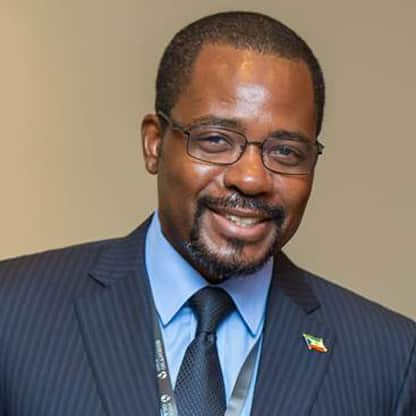H.E. Gabriel Mbaga Obiang Lima
Ministry of Mines and Hydrocarbons, Equatorial Guinea
Minister of Mines and Hydrocarbons
H.E Gabriel MBAGA OBIANG LIMA, Minister of Mines and Hydrocarbons of Equatorial Guinea, presides over the third oil market in Sub-Saharan Africa; greatly appreciated for his incisive leadership and guidance of the Republic of Equatorial Guinea's energy industry during a period of growth and renewal. Under his leadership, Equatorial Guinea's oil and gas sector has embraced innovation and international investment, making progress on a historic regional oil and gas storage facility, the successful completion of the “Alen Gas Hub-Bckfill Punta Europa” project, the establishment of public transport based on CNG, the increase in national personnel in all companies in the hydrocarbon sector in the country, the implementation of various social community projects and mining for the first time in Equatorial Guinea. In 2017, his government signed cooperation agreements with Ghana, Burkina Faso, South Sudan and Uganda to share knowledge and establish greater intra-African trade in hydrocarbons. The agreements demonstrate the objective of the Minister to make Equatorial Guinea a center of excellence for the hydrocarbon industry in Africa. He has been in the industry since 1997 and has held a variety of leadership positions.

